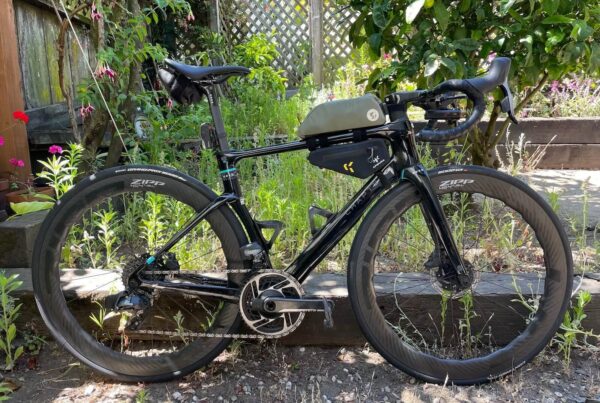If you plan to pedal home after a night out this weekend, you might want to consider the possible ways the police will react if they catch you BUI—bicycling under the influence.
You Lose Your License In states such as Oregon, where traffic laws are equally applicable to cyclists and motorists, BUI can land you in the same trouble as any driver whose blood-alcohol level exceeds the limit (0.08 percent).
You’re in the Clear—If You Behave A few years ago, South Dakota changed its state law to make bicycling under the influence legal. Legislators wanted to encourage people who’d had too much to drink to ride their bikes instead of driving. However, you can be arrested for disorderly conduct if you make a drunken spectacle of yourself.
Something in Between In California, BUI is a separate offense from DUI and doesn’t carry the same consequences. Cyclists can request a blood-alcohol test if they want to try to prove they’re sober, but police can’t require cyclists to be tested. In Washington, drunk cyclists can be stopped—and transported to a safe place—but not arrested for DUI.
No matter where you live, keep in mind that according to the National Highway Traffic Safety Administration, nearly 25 percent of cycling deaths involve a rider who was intoxicated. To reduce your risk—legal and otherwise—consider bar-hopping on foot or by public transportation.
Research and assistance by Rick Bernardi, J.D.
This article, Know When to Say When, was originally published on Bicycling on May 14, 2012.
Now read the fine print:
Bob Mionske is a former competitive cyclist who represented the U.S. at the 1988 Olympic games (where he finished fourth in the road race), the 1992 Olympics, as well as winning the 1990 national championship road race.
After retiring from racing in 1993, he coached the Saturn Professional Cycling team for one year before heading off to law school. Mionske’s practice is now split between personal-injury work, representing professional athletes as an agent and other legal issues facing endurance athletes (traffic violations, contract, criminal charges, intellectual property, etc).
Mionske is also the author of Bicycling and the Law, designed to be the primary resource for cyclists to consult when faced with a legal question. It provides readers with the knowledge to avoid many legal problems in the first place, and informs them of their rights, their responsibilities, and what steps they can take if they do encounter a legal problem.
If you have a cycling-related legal question, please send it to mionskelaw@hotmail.com Bob will answer as many of these questions privately as he can. He will also select a few questions each week to answer in this column. General bicycle-accident advice can be found at bicyclelaw.com.
Important notice:
The information provided in the “Road Rights” column is not legal advice. The information provided on this public web site is provided solely for the general interest of the visitors to this web site. The information contained in the column applies to general principles of American jurisprudence and may not reflect current legal developments or statutory changes in the various jurisdictions and therefore should not be relied upon or interpreted as legal advice. Understand that reading the information contained in this column does not mean you have established an attorney-client relationship with attorney Bob Mionske. Readers of this column should not act upon any information contained in the web site without first seeking the advice of legal counsel.



